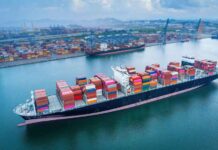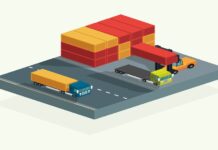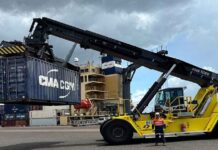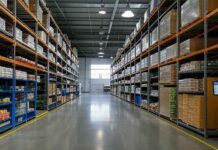Transforming manufacturing supply chains comes with its fair share of challenges. Manufacturers often face unique obstacles as they scale their operations, requiring careful planning and strategic implementation to ensure long-term sustainability. By understanding and addressing common challenges, manufacturers can better navigate their transformation journey. Below, we delve into some of the most prominent issues manufacturers encounter and how they can overcome them.
Extracting Maximum Value from Data
In today’s digital landscape, manufacturers often possess extensive archives of data, sometimes spanning several years. However, many businesses struggle to extract maximum value from this data. This challenge is particularly prominent in manufacturing supply chains, where consolidating information from multiple sources—such as legacy systems, weather patterns, or currency fluctuations—is essential for making informed decisions.
One of the main concerns manufacturers face is ensuring the integrity of this data. It’s crucial that data from various sources remains aligned, matched, and consistent over time. Without proper data cleansing, the reliability of this information could be compromised. Tools such as artificial intelligence (AI) can assist in automating the data cleansing process, ensuring accurate and clean data is available for decision-making.
Real-time data plays a pivotal role in modern manufacturing supply chains. Data from shop floor sensors, for instance, can provide instant insights into production performance. If a quality control issue arises, immediate action can be taken. By using business intelligence dashboards, manufacturers can access real-time production insights, which improve efficiency, reduce costs, and enhance product quality.
Enhancing Data Connectivity
Data connectivity is another crucial aspect of optimizing manufacturing supply chains. As more manufacturers aim to integrate their shop floor assets with their broader data systems, achieving seamless connectivity becomes essential. By doing so, manufacturers can significantly enhance operational efficiency, improve quality control processes, and make better-informed decisions based on real-time data.
However, there is a noticeable skills gap in the manufacturing industry when it comes to managing data streams from sensors and other machinery. Many businesses find it challenging to link their systems effectively or handle the vast influx of data, highlighting a critical need for skilled personnel. Furthermore, the convergence of operational technology (OT) and information technology (IT) adds another layer of complexity, especially when manufacturers are still using legacy equipment.
Before embarking on connectivity initiatives, it’s essential for manufacturers to define clear outcomes. What do they want to achieve with this data? Whether it’s optimizing Overall Equipment Effectiveness (OEE) or enhancing product quality, establishing objectives is a crucial first step. Developing customized applications can also help manufacturers address their specific needs, although this can be difficult without in-house expertise. Fortunately, tools like Power Apps and Power Automate allow companies to create tailored solutions that align with their objectives without requiring advanced coding knowledge.
Leveraging Artificial Intelligence in Manufacturing Supply Chains
Artificial intelligence (AI) has become a key tool in modern manufacturing supply chains, offering vast potential to revolutionize operations. By analyzing global datasets, AI can identify trends and patterns that help manufacturers mitigate risks and enhance performance.
One of the most significant applications of AI in manufacturing supply chains is risk identification. AI can analyze supply chain vulnerabilities and highlight areas of concern, allowing manufacturers to proactively address potential disruptions. For example, AI can suggest preferred suppliers based on their historical performance or issue warnings about upcoming climate-related disruptions that could affect production.
Despite its advantages, AI integration is not without challenges. According to a Gartner survey, only 54% of AI projects progress from the pilot phase to production, indicating that many manufacturers struggle to bring their AI initiatives to life. Partnering with a digital transformation expert can help businesses navigate these hurdles and successfully integrate AI into their manufacturing supply chains, turning AI ambitions into actionable realities.
Building a Sustainable Supply Chain
Sustainability has become a key focus for manufacturers, and building a sustainable supply chain is now a priority. While many businesses report on their internal sustainability efforts, creating a comprehensive sustainability profile requires reporting on every aspect of the supply chain.
Sustainability reporting tools offer manufacturers the ability to track and analyze the environmental and social impacts of their operations. These tools not only help ensure regulatory compliance but also allow businesses to communicate their sustainability efforts transparently. In the context of manufacturing supply chains, sustainability efforts are often tied to shop floor equipment and its usage. Manufacturers are looking to align these efforts with broader sustainability goals, ensuring that every aspect of their supply chain contributes to a more sustainable future.
The integration of sustainability into manufacturing supply chains requires manufacturers to have accurate, real-time data on their operations. This enables them to make informed decisions and demonstrate their commitment to environmentally responsible practices. By linking their production processes with sustainability initiatives, manufacturers can build more resilient, eco-friendly supply chains that contribute to both operational efficiency and long-term success.
Developing a Well-Defined Transformation Strategy
For many manufacturers, having a clear growth strategy is just as important as implementing the right technology. Without a well-defined strategy, efforts to transform manufacturing supply chains can fall short of their potential. To succeed, manufacturers must foster a digital-first culture that supports innovation and change.
A digital-first environment is essential for data-driven decision-making. However, this can only be achieved with effective cross-functional collaboration and a culture of data sharing. By encouraging collaboration across departments, manufacturers can create a more cohesive and informed approach to managing their manufacturing supply chains.
Additionally, manufacturers need the right software and tools to support their transformation journey. Choosing the appropriate technology solutions can be difficult, particularly for businesses that lack the necessary expertise. Partnering with technology providers or digital transformation consultants can help businesses identify the best tools for their needs, ensuring that their manufacturing supply chains are optimized for efficiency and growth.
Conclusion
Manufacturing supply chains are becoming increasingly complex, and manufacturers face various challenges as they work to optimize their operations. From extracting maximum value from data to ensuring connectivity, leveraging AI, building sustainable supply chains, and developing a clear transformation strategy, each challenge requires careful planning and a tailored approach.
By addressing these issues head-on, manufacturers can not only improve the efficiency of their manufacturing supply chains but also ensure they remain competitive in an ever-evolving market. Investing in the right technologies, fostering a digital-first culture, and partnering with experts when necessary, can make all the difference in achieving long-term success in the manufacturing industry.

























